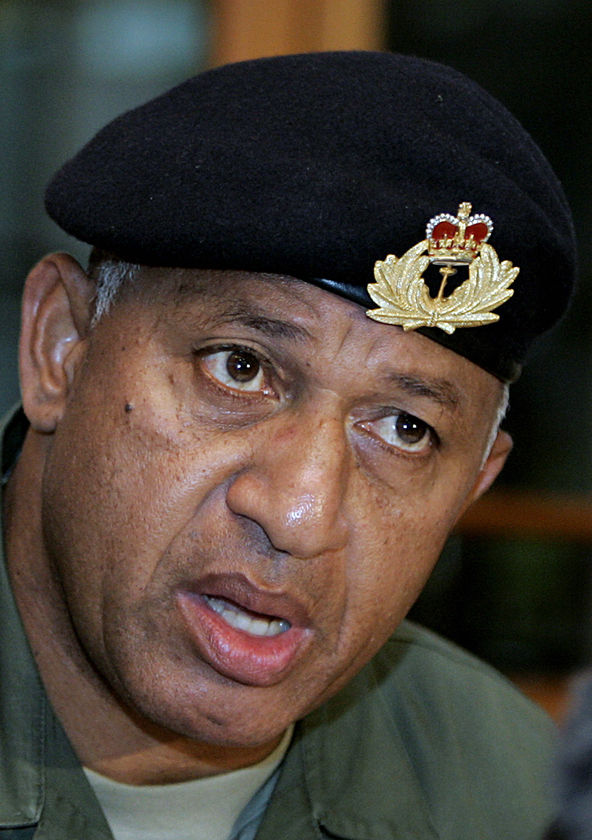Immediately sections of the press, some lawyers and academics hailed the decision. Rowan Callick lauded the ‘three gutsy Australian judges’ who comprised the Appeal Court. The same paper’s front page news report pointed out that the judges do not live in Fiji and left the country immediately after handing down their decision.
However the decision, wrapped up in all its legal niceties, left others in Fiji’s ruling circles to take responsibility for what could follow from the actions of the three departed judges. Immediately Fiji’s President did so, at the same time as the military and police acted to re-assert their authority.
Abrogating, finally discarding the 1997 Constitution, the President has appointed himself as Head of State, the military chief Bainimarama as interim PM and promulgated a new Public Emergency Regulation. The possible date for elections has been pushed out to 2014. It appears as if all members of the judiciary have been removed but it is uncertain what this will mean for the operation of any of the country’s courts. In short, whatever remained as liberal democratic in the country has been at best further weakened.
The international condemnation has already begun, from the USA, Australia and New Zealand, which is hardly surprising, and from within Fiji. The local objections show how difficult it would have been to find a neutral ‘distinguished person’ where all politics reflects the deepening split in the country’s commercial and political elite. Equally predictable are the terms of the protests, that the former President, now Head of State should be defending the 1997 Constitution and ‘the rule of law’. Why exactly this flawed document and some of the institutions which flowed from it should be defended is rarely explained in the cacophony of outrage.
Many years ago the silly claim that sport and politics can and should be kept separate was demonstrated to be patently false. Now, once again, three judges and their backers have tried to pretend that the law and politics are separable, not tied together. The appeal against the High Court’s decision has been shown to be foolhardy, and the 1997 Constitution is gone: where now for the bulk of the Fijian population who have to live with the consequences of attempts to defend the indefensible?

